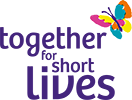What is Digital Marketing?
Digital marketing refers to promoting products or services using digital channels such as search engines, websites, social media, email, and mobile apps. It encompasses a range of online marketing strategies – including SEO, content marketing, PPC (pay-per-click) advertising, and social media marketing – to reach and engage specific target audiences.
Why is Digital Marketing important?
Digital marketing is essential for modern businesses because it:
– Expands Reach: Connects brands with global audiences in real time
– Improves Targeting: Enables personalised, data-driven campaigns
– Delivers Measurable Results: Offers real-time tracking of ROI, engagement, and conversion metrics
– Costs Less: Often more cost-effective than traditional advertising
– Increases Engagement: Builds stronger relationships through social and interactive content
What are the key components of Digital Marketing?
The main pillars of a digital marketing strategy include:
– Search Engine Optimisation (SEO): Improving website visibility on search engines
– Content Marketing: Creating valuable content to attract and convert audiences
– Social Media Marketing: Engaging with audiences on platforms like LinkedIn, Instagram, and TikTok
– Pay-Per-Click (PPC) Advertising: Running targeted paid ads via Google Ads or social media platforms
– Email Marketing: Nurturing leads and customers through personalised email campaigns
– Web Analytics: Tracking and analysing user behaviour and campaign performance
What skills are needed for a career in Digital Marketing?
A successful digital marketer typically has skills in:
– SEO & SEM (Search Engine Marketing)
– Content Creation and Strategy
– Social Media Management
– Data Analysis and Google Analytics
– Email Automation Tools (e.g. Mailchimp, HubSpot)
Soft skills like creativity, adaptability, and analytical thinking are also highly valued.
What are common tools used in Digital Marketing?
Digital marketers often work with tools like:
– Google Analytics and Google Ads
– SEMrush, Ahrefs, and Moz for SEO
– HubSpot and Mailchimp for email and CRM
– Hootsuite, Buffer, and Sprout Social for social media scheduling
– Canva, Adobe Creative Cloud, or CapCut for content creation
What’s the future of Digital Marketing?
As technologies and user behaviours evolve, so does the digital marketing landscape. Key trends shaping the future include:
– AI-Powered Personalisation
– Voice Search and Conversational Marketing
– Short-Form Video Content (e.g., TikTok, Reels)
– Privacy-First Marketing (cookie-less tracking)
– Integrated, Omnichannel Campaigns
Professionals with data, creative, and strategic skills will be in high demand.
Interested in a Career in Digital Marketing?
View our Marketing Career Path page
Looking for a Digital Marketing Role?
Upload your CV and browse our latest Marketing jobs



































